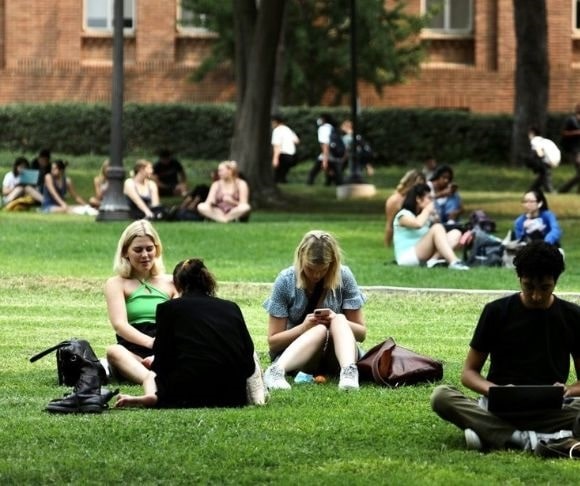How are high schoolers choosing colleges today? Do they base their higher education opportunities on affordability, location, curriculum, or the university’s brand name? While these were all once the top priorities of prospective students, recent polls show they’ve fallen behind diversity and politics.
A new study by Art & Science Group concluded that one in four high school seniors “ruled out institutions solely due to the politics, policies, or legal situation in the state” where the institute was located. And “this behavior was statistically true across liberals, moderates, and conservatives.” The study asked three questions:
- Who is ruling out schools based on social policies in that state?
- Which states were excluded by students?
- Which state social policies facilitated student decisions to rule out schools they were considering?
Not surprisingly, young adults are as divided as today’s political parties. When it comes to school choice, conservatives are avoiding universities in California and New York while liberals are staying away from those in the Midwestern and Southern states, especially Alabama, Florida, Louisiana, and Texas.
Free Speech a Motivating Factor in School Choice
David Strauss, principal of the Art & Science Group, told Axios that shortly after the Supreme Court decision in Dobbs overturned Roe v. Wade, giving states the authority to decide abortion issues, he started getting calls from concerned parties. A college professor, for example, told him: “We’ve already had calls saying, ‘I’m not coming back.’ We already had calls asking, ‘What are you going to do to protect my daughter?’” And at the same time, “we’ve been hearing from the other side of the aisle, questions about whether conservative voices are not welcomed.”
“Nearly half of college students told pollsters in 2022 that they wouldn’t share a dorm room with someone of the opposite political party,” Axios explained. This makes it very difficult to be an “inclusive” and “diverse” institution – something the majority of young adults say is important – and may further impede free speech.
College campuses have come under fire in the past couple of years for forbidding conservative rallies, while instructors and professors have been suspended or fired for speaking out against these policies. As educational authorities try to be more politically correct, they have adopted new guidelines to train educators on issues of diversity. But that doesn’t always have a positive reception. In Ohio, Republican lawmakers are proposing Senate Bill 83, the Ohio Higher Education Enhancement Act, which would prohibit, among other things, “Mandated diversity, equity and inclusion (DEI) courses and training for both staff and students,” Axios Columbus reported.
“About one-third of both liberal-leaning and conservative-leaning students registered apprehension around the practice of free speech on campus, assuming that voices like theirs politically might be squashed at colleges or universities located in certain states,” the poll explained. College campuses used to be the playground for budding activists across the spectrum. Protests, marches, rallies, sit-ins, and walk-outs were all part of the educational experience. While those still happen today, there is increasing fear and concern over what can be said.
The Political Bent on Choosing a School

(Photo by Xinhua via Getty Images)
Whatever is trending in politics also tends to be a factor when it comes to school choice, and abortion access is one of the biggest components in making the decision. A study from Lumina Foundation and Gallup revealed that nearly three-quarters (72%) of students currently enrolled in college claimed that laws governing reproductive issues were important to their choice.
Recently, Florida Gov. Ron DeSantis signed a six-week abortion ban into law, which has turned many students away from the Sunshine State. The Republican leader has also proposed and signed into law a variety of restrictions and guidelines pertaining to schools. According to a survey conducted by Intelligent.com, “1 in 8 prospective college students say DeSantis policies have influenced them not to attend a Florida state school,” and “[o]verall, 91% of prospective college students and 79% of current college students disagree with DeSantis’ policies.” It is important to note how the poll was conducted. According to the website, 1,000 Florida students were surveyed, but “only respondents who answered a screening question that they disagree with DeSantis’ education policies moved on to the full survey; 147 respondents were disqualified at this stage.”
However, Michael New, a Catholic University professor who studies abortion statistics, suggested enrollment was still high in states with restrictions or bans. He cited Rice University in Texas, which recently had its second-largest freshman class ever, and the University of Oklahoma, which had its largest freshman class in history, according to The Washington Times. “Actual enrollment data found no evidence of low enrollments in universities located in states with laws in place protecting pre-born children.” As the Art & Science report emphasized:
“All this leads us to conclude that many prospective students are paying attention to political issues, be they general, longstanding perceptions and/or new and particular initiatives, and that is manifesting in the decision of about a quarter of them to eliminate specific colleges and universities from their consideration sets.”
In essence, college campuses are becoming more divided and polarized. So how should schools adjust to survive this new trend? According to the report: “With political polarization on the rise, and all regions set to see declines in the number of high school graduates in coming years, lawmakers and campus administrators would do well to take student convictions into account as political change-making continues to infiltrate campus life.”




